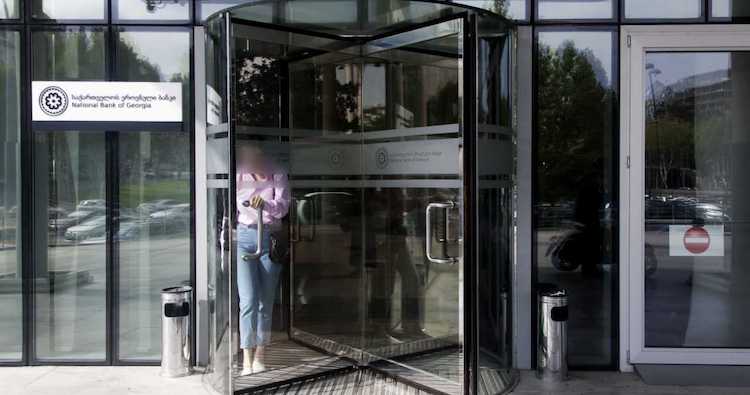National Bank issues rules to mitigate dollarisation risks, increase unsecured consumer loan maturity

The NBG made a number of decisions in order to “further mitigate the risks of dollarisation” and increase the maximum maturity of unsecured consumer loans. Photo: Nino Alavidze/Agenda.ge
The Financial Stability Committee of the National Bank of Georgia made a number of decisions on Wednesday in order to “further mitigate the risks of dollarisation” and increase the maximum maturity of unsecured consumer loans.
The Bank highlighted “significantly” reduced trends of dollarisation across the country, but said it had still decided to impose an additional requirement on regulated financial institutions operating in the country that would come into effect on January 1.
For individuals with a total debt of up to ₾300,000 ($111,538), financial institutions will issue a new foreign currency loan only under hedged currency risk conditions under the new rules.
The Bank also decided to increase the maximum maturity of unsecured consumer loans to four years.
Considering that the high growth rate of unsecured consumer loans recorded in 2022 is reduced, and the activity remains at a sustainable level, from November 1 of this year the maximum term limit for this type of loans will again increase from three to four years”, it said.
The Bank said the annual growth of loans, excluding the effect of the exchange rate changes, amounted to 14.6 percent as of August.
Over the last two years, the ratio of loans to gross domestic product has been decreasing, which was facilitated by high economic growth and strengthening of the exchange rate”, the body added.
In the second quarter of 2023, the ratio of loans to gross domestic product will continue to lag behind the long-term trend, [however] it is expected to approach its long-term trend in 2024 if the current trend of credit activity and economic growth is maintained”, the statement also noted.
The NBG’s 2023 financial stability report, presented at today’s meeting of the Committee, said the Georgian financial sector “maintained stability” and “continued lending to the economy without interruption”.
The next meeting of the Committee is scheduled for November 29.
 Tweet
Tweet  Share
Share






